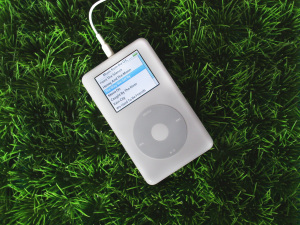Are Children Digitally Doomed?
Children and adults alike are dependent upon electronics of various sorts. Among the many electronics are cell phones, iPods, and portable video game systems such as the PSP and the Nintendo DS. These digital creations have positive and negative impacts on society. The positives are obviously entertainment and convenience; however these fun devices are responsible for hindering classroom learning and communication. Walk around a school, shopping complex, or restaurant and you will see children texting under the desk, ear buds accompanying almost every ear, and the use of video games taking the place of family convers ations. A decade ago, these behaviors were unheard of and would not be tolerated inside of the classroom or family. Classrooms and families are headed towards a digital doom if the negatives of technology overshadow the need for education and family relations.
ations. A decade ago, these behaviors were unheard of and would not be tolerated inside of the classroom or family. Classrooms and families are headed towards a digital doom if the negatives of technology overshadow the need for education and family relations.
Students of all ages are carrying cell phones that they use to send text messages, surf the internet, listen to music and place and receive phone calls. Although these devices are permitted on school grounds, they should be placed away for emergencies. Instead of students relying on these devices for emergencies, they are actively seeking ways to send text messages, surf the internet, and at times place phone calls. Students are losing out on valuable information because they are more focused on entertainment and socializing with their peers discreetly rather than listening to instruction, reviewing their classroom task, or participating in classroom activities. This behavior has become a negative factor in the learning environment because teachers are fighting against technology. Technology should be a friendly ally inside of the classroom and not a hindrance.
Cell phones, iPods, and video games are not only intruding upon learning time, but family time as well. In order for students to recognize how damaging this behavior may be in school, they must be held to the same expectations while at home. There is an appropriate time for entertainment and it can be shared with each member of the family, but it should not replace intimate time used to grow as a family. Dinners should be dedicated to reconnecting with each other’s lives without the interference of iPods, television, video games, or cell phones. Family outings should involve meaningful experiences where children and parents actually speak to one another in great lengths versus segmented nothings over the sound of the latest music hits. Starting in the home is certainly the solution for children’s ability to identify which times are appropriate for digital immersion. Creating and sustaining healthy household behaviors regarding overrated electronics will ultimately guarantee that students can identify satisfactory moments for indulging in their favorite past-times.




